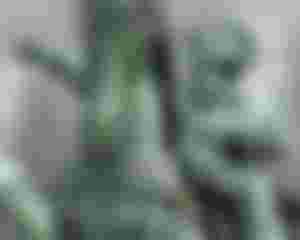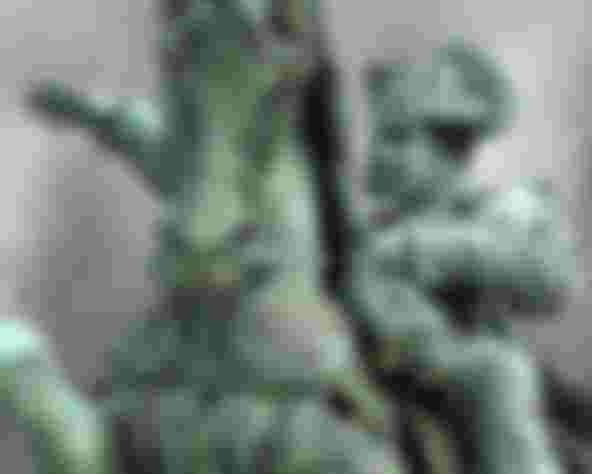
Did you know how the man who perhaps most significantly influenced the history of Europe, the revolutionary general, the first consul and emperor of France, Napoleon Bonaparte (1769-1821), was also a mathematician?
The remarkable development of French mathematics is partly intertwined with the miraculous rise of the general from Corsica, one theorem from geometry is called Napoleon's theorem, and numerous anecdotes speak of this passion of his.
Upon his return to France in 1797, after the success of the first campaign in Italy and the defeat of Austria, one of the most powerful men of that time in the Directorate, was celebrated all over Paris, the dark Foreign Minister Taller asked him if he had any political ambitions.
Napoleon looked at him and allegedly replied that he was not interested in power, but that after the war he was only interested in one thing - to study mathematics again. And, in addition, to be admitted to the Academy of Mathematical and Physical Sciences. This goal, like so many others before and after, was achieved really quickly - in May 1798, Napoleon was elected to the Academy.
Although it could be discussed, this position was by no means completely baseless. During his schooling, before the revolution, Napoleon was noticed in the military school in Brienne Castle as an excellent mathematician, which enabled him to enroll in the elite École Militaire in Paris. Precisely because of his knowledge of mathematics, he became an artillery officer, and he attended classes with the famous Laplace.
His mathematical calculations, after the beginning of the revolution, enabled him to solve the siege of Toulon, where he outplayed the royalists and British forces with artillery fire, in order to bring an unexpected victory to the revolutionary forces and immediately afterwards, get the rank of general. In a similar way, using artillery, he later took part in the bloody suppression of the royalist revolt in 1794. It was also the beginning of its rise and huge popularity throughout France.
After a series of victories across Europe and Africa over the anti-revolutionary coalition, his fame became so great that, despite the answer he gave Talleyrand, he entered politics. In the circumstances of great internal instability, the French handed him almost unlimited power.
Although this fact was forgotten under the obvious influence of British propaganda during the 19th century, Napoleon was elected the first consul of the Republic in 1799 by direct vote in a plebiscite in which 1.5 million voters participated and 98% of whom voted for him. After new victories, his mandate was extended for life in 1802 with 99 percent of the votes won in a new plebiscite in which 3.6 million French people participated. The same result will be repeated in 1804, when he will be proclaimed emperor.
During his career, he also managed to be resurrected when everyone wrote him off, and after the exile on the Elbe in a few months in 1815, he mobilized the whole of France around him again. He won more than 60 different battles, including a glorious victory at Austerlitz, while losing only a few.
It is considered that he was not a special innovator in the military sense, but that he only consistently applied the knowledge acquired in the military school, which he himself said. But his understanding of geometry allowed him to always see many more moves than his rivals during battles. When asked who is the greatest general of the epoch, his mortal enemy, the British military leader Wellington allegedly said "In this age, in previous ones, in every age, Napoleon".
Napoleon's legacy is difficult to measure - he took France out of the period of the revolution and made it a world power, and with his conquests he practically changed the history of most European countries and temporarily expanded French territory to more than half of Europe, which ended in defeat at Waterloo. The photograph shows only one of the monuments dedicated to him, a bust in Cherbourg Castle, which was erected only in 1858.
Napoleon was left with many lasting, civilizational achievements, such as the Civil Code, modern education and the lyceum system, the metric system and the legion of parts. Among other things, even the later French tradition of applied mathematics is connected to him.
In mathematics itself, the so-called Napoleon's theorem is attributed to him. According to it, if equilateral triangles are constructed on the sides of any triangle, their centers will form an equilateral triangle. The true origin of Napoleon's theorem is under discussion, as the British believe that it was not proved by Napoleon.
Napoleon also dedicated some of his military campaigns to science. After agreeing with Tallaren on the need for a military expedition to Egypt, in 1798 he took 150 selected French scientists, mathematicians and artists to Africa with his troops.
Along with Napoleon, the members of the expedition were also chosen by the Furies, and after it one of the most influential books about Egypt was written. Among other things, during this expedition in Memphis, a stone from Rosetta was discovered, which will be used by Champollion to decipher Egyptian hieroglyphs.

According to some data, while he was attending school, he was harassed by his peers because of his Corsican origin, which influenced Napoleon to develop a complex of lower value. Napoleon was nicknamed "Le Petit Caporal" (Little Corporal), which he received thanks to his short stature.